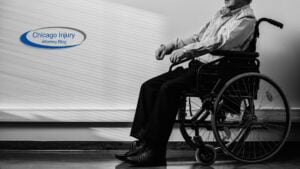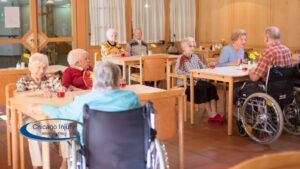Medication errors in nursing homes have become a growing concern in healthcare settings. This article provides an overview of a study on medication errors, focusing on the background, study design, results, and conclusions. It also examines the role of human factors, technology, and organizational factors in medication errors. The discussion includes suggestions for improving medication safety in nursing homes.
By addressing the interplay between organization and staff, technology implementation, and the importance of reporting deviations, this article aims to shed light on a critical issue impacting patient care.
Introduction to Medication Errors in Nursing Homes
Medication errors in nursing homes pose a significant risk to patient safety and necessitate a thorough examination of medication management practices within these healthcare institutions.
Ensuring proper medication administration is crucial in preventing adverse events and optimizing health outcomes for elderly residents in nursing homes. Factors such as multiple medications, complex dosing schedules, and the vulnerability of the aging population increase the likelihood of errors. The impact of medication errors can range from mild discomfort to life-threatening consequences, underscoring the critical need for stringent medication protocols and vigilant monitoring.
Studies have shown that medication errors are alarmingly common in nursing homes, with up to 75% of residents experiencing at least one error during their stay. These errors can lead to unnecessary hospitalizations, worsened health conditions, and even fatalities, highlighting the urgency of addressing this issue in geriatric care settings.
Effective communication among healthcare providers, accurate documentation, regular reviews of medication regimens, and staff training on medication safety are essential components in reducing the occurrence of medication errors. By prioritizing patient safety and implementing robust medication management strategies, nursing homes can enhance the quality of care provided to their residents and promote a safer healthcare environment.
- Implementing technological solutions, such as medication administration software and electronic medication reconciliation systems, can help streamline processes and reduce the likelihood of errors occurring.
- Collaboration between pharmacists, physicians, nurses, and other healthcare professionals is key to ensuring comprehensive medication management and fostering a culture of safety within nursing home facilities.
- Continuous monitoring, feedback mechanisms, and quality improvement initiatives are integral in identifying areas for improvement and maintaining high standards of care in medication administration.
Overview of the Growing Concern
The growing concern regarding medication errors in nursing homes has garnered attention from healthcare institutions, emphasizing the need for improved patient safety measures and enhanced medication management practices.
Medication errors in nursing homes pose significant risks to elderly residents and can have serious implications for their well-being. Factors contributing to this concern include complex medication regimens, understaffing, lack of standardized procedures, and human error.
These errors not only impact patient safety but also carry financial and legal ramifications for healthcare facilities. As the healthcare landscape evolves, there is a pressing need for proactive solutions such as advanced technology systems, comprehensive training programs for staff, and robust medication reconciliation processes.
Abstract
The abstract of this study on medication errors in nursing homes encapsulates the prevalence of medication errors, their impact on patient safety incidents, and the insights gained from a comprehensive medication errors study.
The research delved into the various types of medication errors occurring in nursing homes, ranging from administration mistakes to documentation errors, shedding light on the root causes that lead to these incidents. By employing both quantitative and qualitative research methodologies, the study was able to provide a multifaceted understanding of medication errors’ complexities.
The findings emphasized the critical need for enhancing medication management protocols within nursing homes to mitigate the risks associated with medication errors and ultimately improve patient outcomes.
Summary of the Study on Medication Errors
The study on medication errors in nursing homes sheds light on the root causes of such errors, the instances in which they occur, and the critical insights gained from an in-depth examination of medication errors within these care settings.
One of the key factors contributing to medication errors in nursing homes is the complexity of medication regimens for residents, leading to confusion and potential mistakes during administration. The lack of standardized protocols and communication gaps between healthcare providers further exacerbate the risk of errors.
The study highlighted instances of errors such as incorrect dosages, drug interactions, and administration mix-ups, underscoring the need for improved training and oversight. These findings have significant implications for healthcare providers as they emphasize the importance of implementing robust medication management systems and fostering a culture of safety to enhance patient outcomes.
Background and Study Design
The background and study design of this investigation into medication errors in nursing homes encompass a comprehensive approach to understanding and preventing medication errors, emphasizing the importance of adverse event reporting and proactive prevention strategies.
Understanding medication errors involves a multifaceted approach that delves into the root causes and contributing factors that lead to these errors in nursing home settings. Researchers analyze data from various sources, including incident reports, medication reconciliation processes, and direct observation studies. By pinpointing common errors, such as dosage miscalculations or drug interactions, healthcare providers can implement targeted interventions to enhance medication safety.
Establishing a robust adverse event reporting system is crucial for capturing and analyzing errors in real-time. This system enables healthcare professionals to identify trends, patterns, and systemic issues that may compromise patient safety. Through continuous monitoring and feedback mechanisms, facilities can proactively address vulnerabilities within their medication administration processes and improve overall quality of care.
Results and Conclusions
The results and conclusions drawn from the analysis of medication errors in nursing homes highlight opportunities for medication management improvement, the direct impact on patient outcomes, and the imperative need for enhanced patient safety measures.
One key finding is the prevalence of administration errors stemming from improper dosage calculations and medication dispensing processes.
These errors not only compromise patient health but also underscore the pressing need for streamlined protocols in long-term care facilities.
Enhancing medication reconciliation procedures through technological interventions, such as barcode scanning systems, emerges as a viable solution to mitigate these errors and improve patient safety.
Study Participants and Settings
The study participants and settings involved in the examination of medication errors in nursing homes comprise a diverse group of individuals, including nursing home residents, healthcare professionals, and staff members responsible for medication administration.
Case reviews play a crucial role in identifying the root causes of medication errors in nursing homes, allowing for targeted interventions and prevention strategies. The nursing home staff members, such as nurses, medication aides, and pharmacists, are central figures in the medication management process, ensuring safe administration and adherence to prescribed treatments. Their dedication and competence are essential in maintaining patient safety and quality care.
The stakeholders in medication management within these care settings extend beyond the immediate healthcare team to include family members of residents, regulatory agencies, medication suppliers, and healthcare insurance providers. Each of these parties contributes to the complex network of medication oversight and quality control, highlighting the interconnected nature of ensuring medication safety in nursing homes.
Data Collection and Analysis
The data collection and analysis process for this medication errors study in nursing homes involved meticulous research procedures, data assessment, and comprehensive analysis of findings, as documented in an open-access research article published in BMC Nursing.
The researchers adopted a mixed-method approach in collecting data, utilizing both quantitative surveys and qualitative interviews to capture a comprehensive understanding of the medication errors landscape within nursing homes.
The data analysis involved coding and categorizing the collected data, followed by thematic analysis to identify key patterns, trends, and factors contributing to medication errors.
Results from the study revealed alarming rates of medication errors in nursing home settings, emphasizing the urgent need for enhanced training, improved communication protocols, and stricter medication administration guidelines to ensure resident safety and quality care.
Human Factors and Medication Errors
Human factors play a crucial role in medication errors within nursing homes, encompassing human limitations, challenging working conditions, and the complexities associated with drug administration processes.
Understanding human limitations is essential as it relates to memory constraints, attention span, and the potential for error under stress.
The influence of working conditions, such as high workload and lack of resources, can significantly impact the quality of medication administration.
The intricacies of drug administration, including dosage calculations, drug interactions, and proper documentation, further contribute to the risk of errors.
Addressing these factors through enhanced training, improved protocols, and fostering a culture of safety is crucial in minimizing medication errors and ensuring patient well-being.
Role of Technology in Medication Management
Technology plays a pivotal role in medication management within nursing homes, facilitating streamlined medication delivery processes, enhancing monitoring for adverse drug reactions, and addressing medication management issues proactively.
Efficient medication delivery is vital for ensuring residents receive their medications on time and in the correct dosages. Technology enables automated dispensing systems that help reduce errors and enhance accuracy in medication administration. The integration of electronic health records allows healthcare providers to track medication histories, identify potential interactions, and personalize treatment plans based on individual patient needs.
Advanced technological tools, such as smart medication packaging and electronic medication reminders, contribute to improving medication adherence among residents. These innovations not only promote patient safety but also support healthcare professionals in monitoring medication compliance and adjusting treatment regimens accordingly.
Technology plays a crucial role in enhancing adverse drug reaction monitoring by providing real-time alerts and automated notifications when potential risks are identified. This proactive approach enables healthcare teams to intervene promptly, minimize adverse effects, and improve patient outcomes.
Organizational Factors Impacting Medication Errors
Organizational factors significantly influence medication errors in nursing homes, encompassing the prevalence of such errors, potential prescribing errors, and the unique challenges faced in addressing medication errors within care home settings.
One key aspect that contributes to the prevalence of medication errors in nursing homes is the complexity of medication schedules and dosages, especially for residents requiring multiple medications.
The risk of prescribing errors increases when there is a lack of proper communication among healthcare providers, leading to misunderstandings or incomplete information regarding a resident’s medication history.
The challenges in addressing medication errors in care home environments include staff shortages, high workload pressures, and the need for improved medication management protocols to ensure accurate administration and monitoring.
Discussion on Medication Error Prevention
The discussion on medication error prevention highlights the importance of mitigating medication management mistakes, refining medication administration techniques, and implementing proactive strategies to prevent medication errors in nursing homes.
Managing medication errors in nursing homes requires a multifaceted approach that includes comprehensive staff training, utilizing technology for medication tracking, conducting regular medication reconciliation reviews, and promoting open communication among healthcare providers, residents, and families.
By focusing on medication management practices, nurses can create standardized protocols for medication storage, administration, and documentation, ensuring accuracy and consistency in care delivery.
Introducing routine medication audits, encouraging medication review committees, and engaging in continuous quality improvement initiatives can further reinforce a culture of safety and accountability within nursing home environments.
Interplay Between Organization and Staff
The interplay between organizational practices and staff behavior, including registered nurses and non-licensed staff, influences medication borrowing practices and the potential for medication errors in nursing homes.
Organizational policies serve as the foundation of rules and guidelines that guide staff conduct within healthcare facilities. Registered nurses, with their advanced training and knowledge, play a crucial role in medication administration and management. Non-licensed staff, although essential in supporting daily operations, must adhere strictly to protocols established by the organization.
When these policies are not followed, especially in the context of medication borrowing, it can lead to serious repercussions, including compromising patient safety. The act of borrowing medications between staff members without proper documentation or oversight poses significant risks.
Technology Implementation Across Organizations
The implementation of technology-driven systems, such as web-based reporting systems and error reporting mechanisms, enhances medication error reporting processes and fosters a culture of transparency and accountability within healthcare organizations.
These solutions offer numerous benefits with their streamlined processes for documenting and analyzing medication errors. By utilizing web-based reporting systems, healthcare facilities can efficiently capture incident data, categorize errors, and generate comprehensive reports in real-time.
The integration of error reporting mechanisms allows for the identification of root causes behind errors, enabling organizations to implement targeted interventions and preventive measures to reduce future occurrences.
These technologies facilitate communication among healthcare staff, promoting knowledge sharing and best practices to enhance patient safety standards.
Importance of Reporting Deviations
Emphasizing the importance of reporting deviations, including instances of medication malpractice, enables proactive identification of errors, appropriate resolution measures, and considerations for financial compensation within the framework of an effective error reporting system.
Early detection of errors through reporting mechanisms not only aids in swift corrective actions but also ensures regulatory compliance, bolstering the integrity of healthcare practices. By promptly flagging medication malpractice, healthcare professionals contribute to a culture of transparency and accountability, fostering trust among patients and stakeholders. Efficient error reporting systems facilitate the tracking of trends, enabling healthcare organizations to implement targeted prevention strategies and improve patient safety outcomes.
Suggestions for Improving Medication Safety
Recommendations for enhancing medication safety in care homes involve collaborative efforts among healthcare providers, proactive error prevention strategies, and continuous monitoring to identify and address medication errors effectively.
It is essential that all staff members in care homes, including nurses, doctors, pharmacists, and caregivers, work together to ensure patient safety when it comes to medication management. Establishing clear communication channels among the team can help prevent misunderstandings and potential errors in administering medications.
Implementing standardized protocols for medication ordering, dispensing, and administration can significantly reduce the risk of errors. Regular medication reconciliation processes should be in place to cross-check medications received, administered, and discontinued, minimizing the chances of discrepancies.
Conducting regular education and training sessions for care home staff on medication safety practices and new developments in the field is crucial. This ongoing education ensures that all personnel stay updated with best practices and guidelines, fostering a culture of safety and accountability.
References
The references cited in this study encompass a range of sources, including analyses of medication errors, insights from NHS medication error reports, and references to patient safety initiatives aimed at mitigating the risks associated with medication errors.
These diverse references provide a comprehensive view of the challenges and solutions related to medication errors in healthcare.
- Studies such as those by Smith et al. (2018) delve deep into the root causes of medication errors, shedding light on factors contributing to such incidents.
- NHS medication error reports offer valuable real-world data on the prevalence and types of errors occurring within healthcare settings.
- Initiatives like the Institute for Safe Medication Practices (ISMP) have been pivotal in developing strategies to reduce medication errors and enhance patient safety measures.
Frequently Asked Questions
What are medication errors in nursing homes and why are they a growing concern?
Medication errors in nursing homes refer to mistakes made during the process of prescribing, dispensing, or administering medication to elderly residents. These errors are a growing concern because they can result in serious harm or even death for the vulnerable population living in these facilities.
What are some common types of medication errors in nursing homes?
Some common types of medication errors in nursing homes include giving the wrong medication or dosage, administering medication at the wrong time, failing to monitor for drug interactions, and not following correct administration procedures.
What factors contribute to medication errors in nursing homes?
Several factors can contribute to medication errors in nursing homes, including inadequate training of staff, high workload and stress levels, lack of communication between healthcare providers, and inadequate medication management systems.
How can medication errors in nursing homes be prevented?
To prevent medication errors in nursing homes, healthcare facilities should have clear protocols and guidelines for medication administration, provide proper training to staff, use technology to improve medication management, and encourage open communication between healthcare providers and residents.
What should I do if I suspect a medication error in a nursing home?
If you suspect a medication error in a nursing home, it is important to speak to the resident’s healthcare provider and the facility’s management. You can also report the error to the state’s department of health or the nursing home’s ombudsman.
How can family members help prevent medication errors in nursing homes?
Family members can play a crucial role in preventing medication errors in nursing homes by keeping an up-to-date list of the resident’s medications, asking questions about their loved one’s medication regimen, and advocating for proper medication management and communication between healthcare providers.





